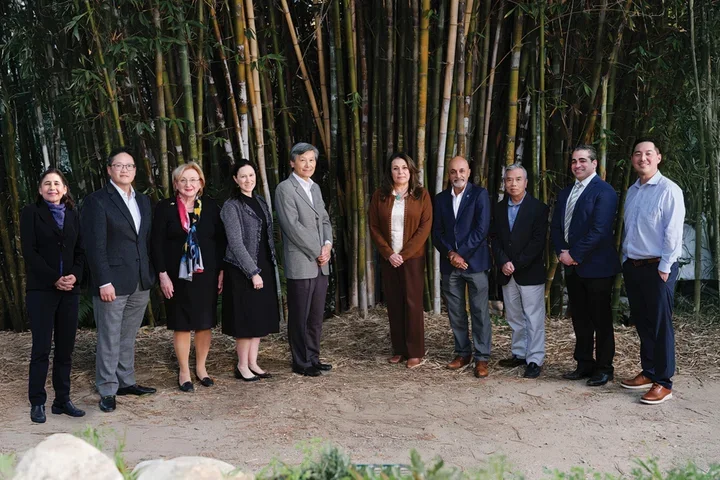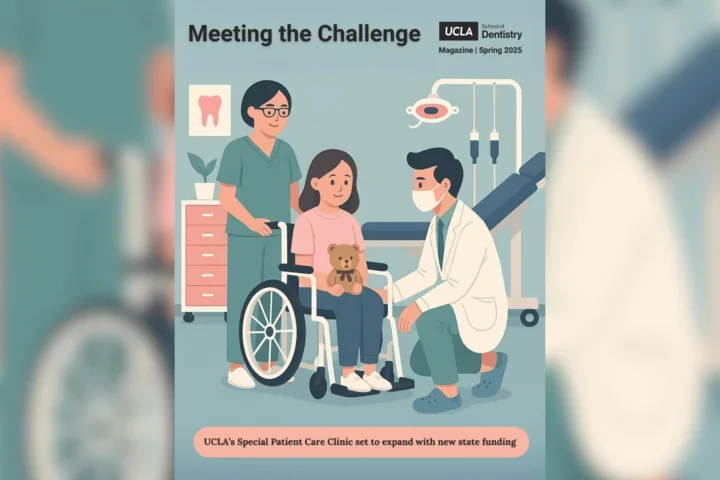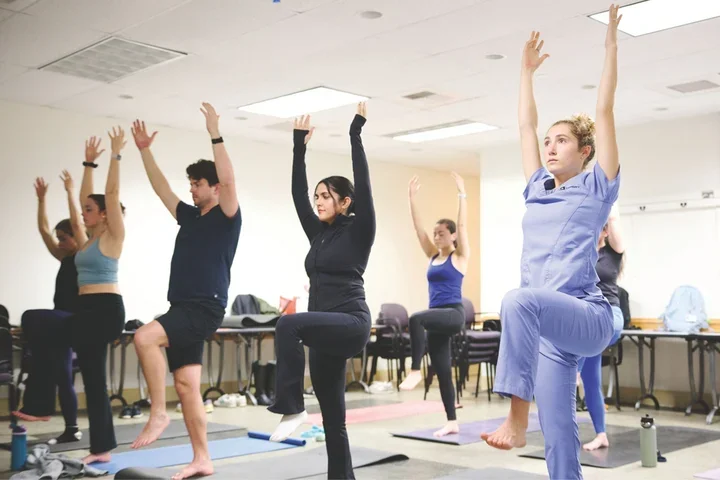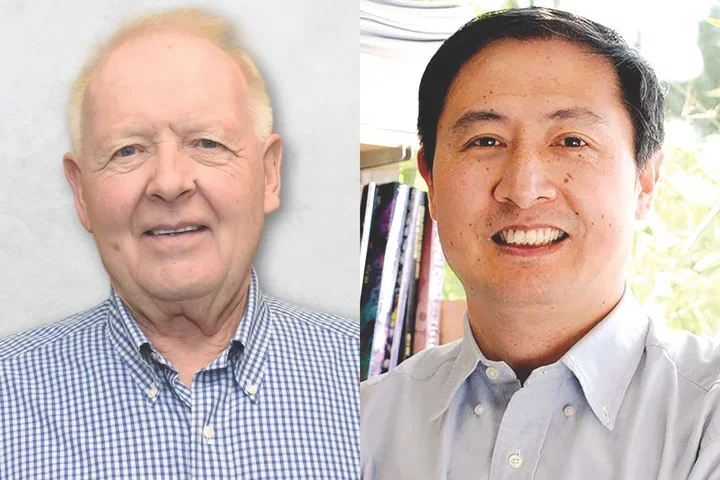Meeting the Challenge
A $4.2M state grant to expand the UCLA School of Dentistry's Special Patient Care Clinic will adress a critical need for medically complex patients.
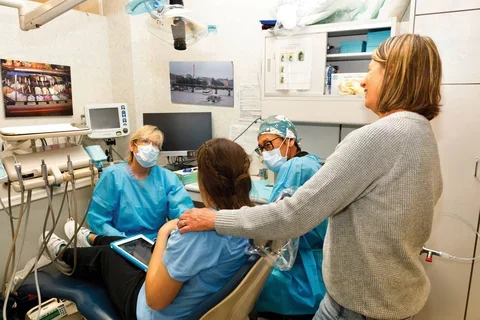
This story appears in the UCLA School of Dentistry's spring 2025 magazine. Click here for all magazine content.
Jo Ashline faced a quandary. Her son Andrew has rare, genetic SYNGAP1-related disorders that cause severe intellectual disabilities and complex medical conditions, including epilepsy. He hit his front tooth during an atonic seizure “drop attack,” when his muscles went limp and he fell. It looked like he might need a root canal. The Tustin, Calif., resident had been taking her son to Children’s Hospital of Orange County for dental work under anesthesia, but Andrew, then 21, had aged out of pediatric dental care.
Ashline called several local practices that provided treatment under sedation, but “the minute they heard the severity of Andrew's diagnoses, they said they couldn’t touch him.”
“They weren’t comfortable,” she recalls. “It’s shocking just how limited the availability of care is for our more medically complex population.”
She eventually called the UCLA School of Dentistry’s Special Patient Care Clinic, which assured her it could provide care to Andrew. However, the Clinic’s extensive wait list meant Andrew would have to wait a year for an initial appointment.
The School of Dentistry’s expertise, a dearth of practices willing or able to treat special needs patients, and the vast need among this population all factor into the long wait times.
“We are one of the strongest specialty care programs in California,” says Eric Sung, D.D.S., professor and holder of the Momentum Endowed Chair in Special Patient Care, who has directed the small, six-chair clinic since 1992. “We get referrals from all other Southern California institutions. We’re often the provider of last resort.”
The Special Patient Care Clinic, formerly known as Hospital Dentistry, provides advanced comprehensive oral health care for patients with severe medical, physical, and intellectual concerns. Care ranges from cleanings to biopsies, root canals, and dental surgery.
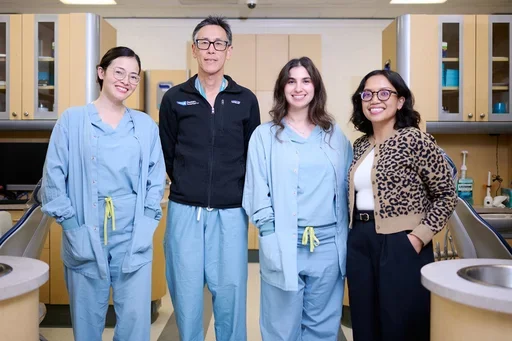
Those six dental chairs occupy a cramped 209 square feet, allowing for the training of six residents annually. In 2024, more than 3,500 patient visits were administered to 1,745 patients. Nearly 60% of patients with special healthcare needs require dental appointments taking between two to four hours, often involving sedation.
Later this year, Special Patient Care at UCLA will undergo a radical transformation, dramatically reducing those long wait times while increasing the Clinic’s ability to meet the needs of this patient population.
In February, the School was allocated $4.2 million from the California Health Facility Financing Authority (CHFFA) to physically renovate and expand the Clinic.
In a previously unused 2,377-square-foot space on the A level of the School’s Westwood Clinics, eight additional patient chairs will be installed, including two in quiet rooms for patients triggered by stimuli such as noise or bright lights. The new facility will also include office space for faculty and resident practitioners as well as support staff. State funds will allow for the purchase of furniture and specialty equipment needed for this population, such as a wheelchair tilt, Hoyer lift, and vital signs monitors.
“With the exciting expansion of our Clinic’s size and capacity, we’re unlocking new opportunities to recruit and train even more dedicated providers while significantly increasing care for patients with special healthcare needs,” says Dr. Sung. “This growth also means we can offer additional residency slots in our General Practice Residency program—empowering more future dentists to confidently care for patients with special health care needs across both hospital and community-based settings the moment they earn a certificate.”
The massive expansion has implications for D.D.S. candidates as well. Currently, third-year dental students complete a one-day rotation in the Clinic, with only an hour spent chairside. Dr. Reeva Mincer, director of the General Practice Residency program, says the expansion will allow students to do more than just observe.
“We hope to create a selective, or possibly mandatory, rotation where fourth-year students can actually treat patients.” She says student dentists who experience firsthand clinical exposure to special care populations show increased confidence and willingness to treat this population in their own practices.
Dr. Mincer believes many of the patients seen for routine and less complex procedures at the Clinic could be served in community dental settings and would benefit from having the same provider over time.
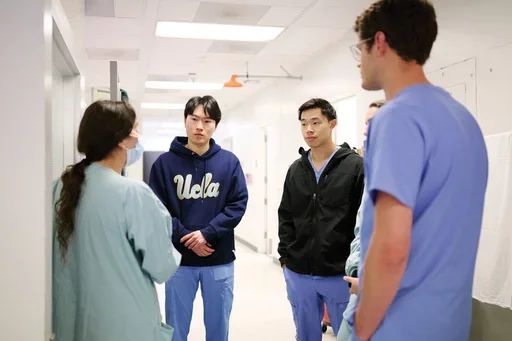
“It’s not so different from treating other patients. It’s just about building a rapport, getting to know that patient on an individual level, and adjusting to what makes them afraid. It means altering what you do ever so slightly to make a patient more comfortable.”
Thanks to their willingness to take time with and gain patient trust, Clinic practitioners are able to transition 89% of patients previously put under general anesthesia for routine dental care to more moderate intravenous sedation. In addition, the Special Patient Care Clinic partners with the Department of Social Welfare at the UCLA Luskin School of Public Affairs to provide social work services to patients and their families.
Corinne Eisler, who has cerebral palsy, intellectual disabilities, and autistic behaviors, has received treatment at the Clinic for the past 21 years. She accumulates plaque quickly and visits every six months for cleanings. Her parents, Michelle and Fred, make the trek with Corinne from Santa Clarita, which requires the family to leave their home at 6 a.m.
“We’re incredibly thankful UCLA has this program. We don’t know how else we’d get her the care she needs,” Michelle says. “I’m so happy they are expanding the program.”
The UCLA School of Dentistry was one of only four dental schools awarded a CHFFA grant. A total of $47.2 million will be dispersed to support 13 projects in private and community-based clinics statewide, which were selected from 110 total applicants.
The grant criteria focused on caring for patients with intellectual and developmental disabilities such as autism spectrum disorder, Down syndrome, and dementia. However, the Clinic also serves patients with significant medical complexities, such as end-stage organ disease, which hinder their ability to obtain routine dental care. With most patients at the Clinic being Medi-Cal beneficiaries, it is one of the few special care facilities in the region that accepts public health insurance.
While this transformative state grant covers construction and furnishings—and donors have provided critical support for services like on-site social work—the Clinic still has financial needs. The CHFFA funding does not provide for additional staff or the extra faculty needed to teach larger resident cohorts. For that reason, Dr. Sung says he will start with two additional residents per year, gradually bringing the Clinic to full capacity over the next five years.
Equipment also degrades more quickly because patients sometimes damage it. The Special Patient Care Clinic has depleted its reserve, called the Angel Fund, that helped families with expenses such as gasoline or lodging. It furnished comfort items to soothe anxious patients, such as noise-canceling headphones and stuffed animals. Collectively, such efforts make a big impact on patients and their families, but they require continual funding
When Jo Ashline – whose son Andrew hit his tooth during a seizure – came to the Clinic for Andrew’s initial appointment, she says, “Even though it was hard for us, the staff was extremely kind, very patient, very professional and very accommodating. Dr. Sung addressed Andrew with dignity and respect. Andrew doesn't understand cognitively, but Dr. Sung didn't make assumptions. He spoke kindly and not as if Andrew was not there.”
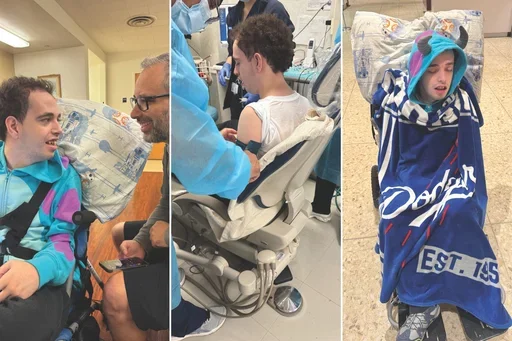
In February, during Andrew’s first treatment under sedation, he received a thorough dental cleaning and X-rays. While Dr. Sung determined Andrew did not need a root canal, his inflamed gums were protruding considerably down his gumline, and
Dr. Sung treated them with cauterization.
“We didn’t know that was possible. His smile looks amazing now. Individuals with developmental disabilities and medical complexities, like Andrew, are very much whole human beings. They deserve the same level of care and the same beautiful, healthy smiles that other people deserve.”
